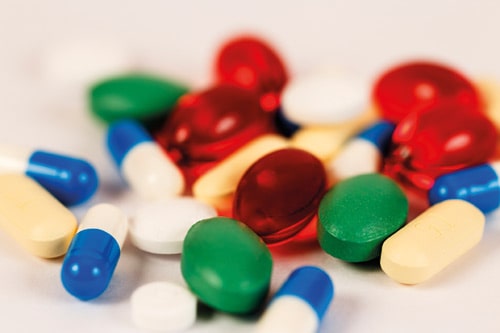
Rebiotix says its microbiota suspension RBX2660 has prevented recurrences of troublesome Clostridium difficile infections in a mid-stage trial and will be advanced into phase III.
The Minnesota-based company is a specialist in using suspensions of bacterial cultures to restore the natural balance of the bacterial colonies that populate our bodies – known as the microbiome – which can become disrupted by disease or drug therapies.
In the PUNCH open-label trial, RBX2660 given as two separate doses a week apart met its primary objective of reducing the recurrence of C. diff infections, which often occur as a consequence of antibiotic therapy for other infections when added to standard antibiotic therapy.
Almost 79% of patients on Rebiotix’s therapy had no recurrence over the course of the study, which compares favourably with a historical control rate of 52% says the company.
While unpleasant, C. diff infections are generally not life threatening and can usually be treated effectively with another course of antibiotics. In some cases however, damage to the bowel or severe dehydration can result and the infection can be much more serious in patients with compromised immune systems.
Rebiotix’s chief executive Lee Jones said the results suggest that a “broad-spectrum microbiota drug product [can] rehabilitate the gut microbiome and break the cycle of C. diff recurrence”.
The microbiome is fast becoming a hot topic in the pharma industry, with several companies exploring whether therapies based on bacterial suspensions – or drugs from microbiome-derived targets – can tackle a range of not only gastrointestinal diseases but also cancer, diabetes, and central nervous system disorders like Parkinson’s and multiple sclerosis.
Takeda has been actively seeking out companies working in this area – forging deals with Enterome (which is also working with Bristol-Myers Squibb), Finch Therapeutics and most recently NuBiyota to build a portfolio of microbiome technologies. Johnson & Johnson’s Janssen unit has set up a research institute dedicated to microbiome studies, and food giant Nestle is also getting involved with a $1.9bn partnership with microbiome specialist Seres that is spearheading a push into pharma.
Meanwhile, other emerging strategies for the prevention of C. diff recurrence include antibodies like Merck & Co’s recently-approved Zinplava (bezlotoxumab) – which works by neutralising toxins secreted by the bacterium – and prophylactic vaccines, such as Pfizer’s PF-06425090 and Sanofi Pasteur’s ACAM-CDIFF which are both in late-stage testing.




